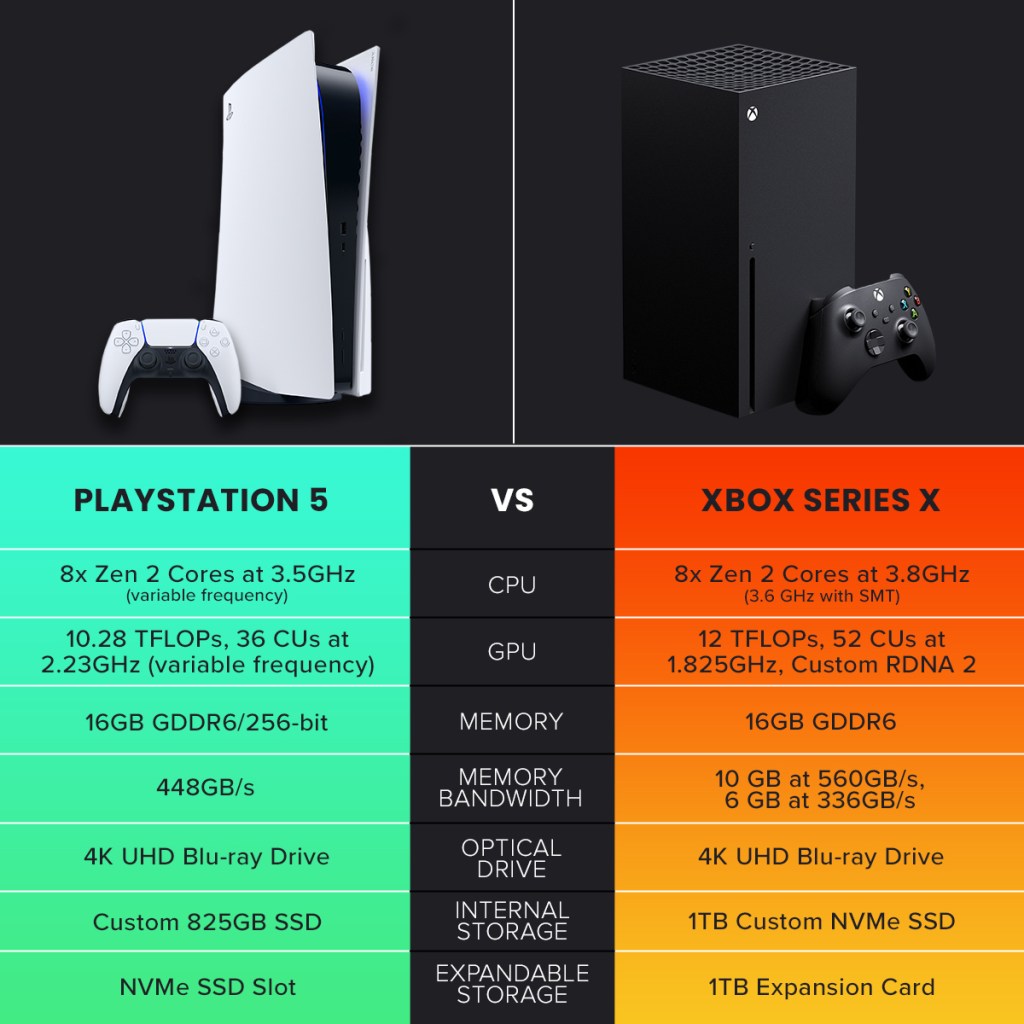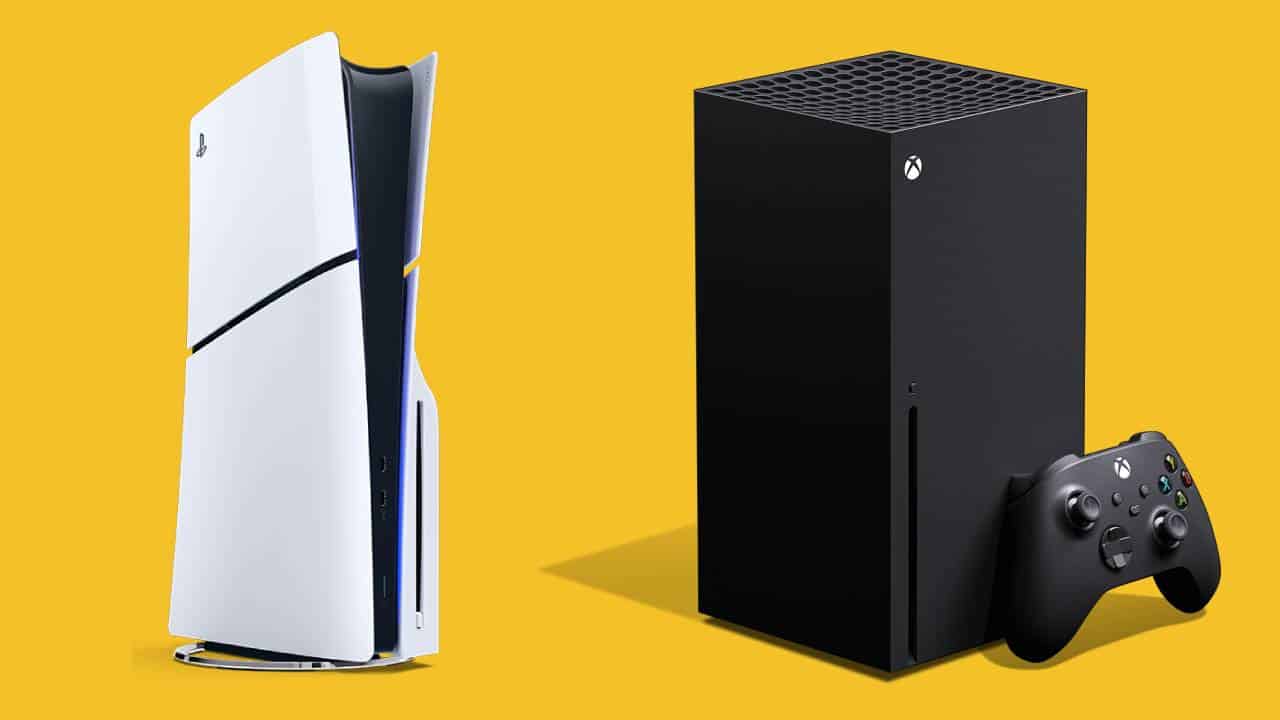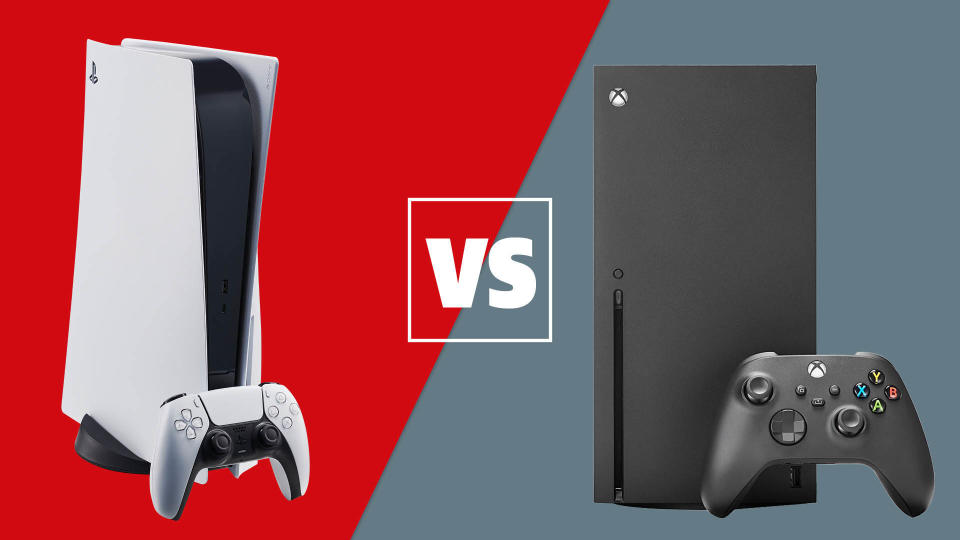

PS5 vs. Xbox Series X: The Ultimate Console Showdown – Which is Better for You?
The dawn of a new console generation is always an exciting time for gamers. Hype builds, specs are dissected, and the age-old question resurfaces: which one should I buy? With the PlayStation 5 and Xbox Series X now firmly established in the market, the dust has settled enough to offer a comprehensive look at what each machine brings to the table. Both are powerful, feature-rich consoles capable of delivering stunning visual fidelity and immersive experiences. But are they created equal? And, more importantly, which one is the better fit for you?
Let’s dive deep into the key areas where these two titans of gaming diverge and converge.
1. Raw Power: Specs on Paper
On a technical level, the PS5 and Xbox Series X are remarkably similar. Both are powered by custom AMD Zen 2 CPUs and RDNA 2 GPUs, feature 16GB of GDDR6 RAM, and utilize custom NVMe SSDs for lightning-fast storage.
-
- CPU: Both use an 8-core Zen 2 CPU, though the PS5 clocks slightly higher at a variable 3.5 GHz compared to the Series X’s fixed 3.8 GHz (3.6 GHz with SMT). In practice, this difference is negligible for most games.
- GPU: This is where the most often cited difference lies. The Xbox Series X boasts 12 teraflops (TFLOPS) of GPU power compared to the PS5’s 10.28 TFLOPS. While 1.72 TFLOPS might seem significant, raw teraflops don’t tell the whole story. The PS5’s GPU architecture is slightly different, and Sony highlights its custom “Geometry Engine” and other features designed for efficiency. In real-world performance, developers often achieve comparable results on both consoles, sometimes favoring one over the other depending on optimization. Both support features like ray tracing for more realistic lighting.
- RAM: Both have 16GB of GDDR6 RAM, with slight differences in bandwidth allocation. Again, the practical impact on game performance is minimal.

- SSD: Both consoles feature custom SSDs that are the true game-changers this generation, drastically reducing load times. The PS5’s SSD has a higher raw bandwidth (5.5 GB/s raw, 8-9 GB/s compressed) compared to the Series X (2.4 GB/s raw, 4.8 GB/s compressed). While the PS5’s raw speed is faster, Microsoft’s architecture, including the Xbox Velocity Architecture, is highly optimized to utilize its speed effectively. Both deliver revolutionary loading speeds compared to the previous generation. The usable storage space is also slightly different (around 825GB for PS5, ~1TB for Series X, with OS taking up space on both).
Verdict on Specs: While the Xbox Series X has a slight edge in raw GPU power and a little more usable storage out of the box, the PS5 compensates with a faster raw SSD speed and optimized architecture. For the vast majority of multi-platform games, performance is very close. Neither console is definitively “more powerful” in a way that translates to a consistently superior gaming experience across the board.
2. Design and Aesthetics
This is purely subjective, but the visual difference between the two consoles is stark.

- PS5: Sony opted for a bold, futuristic, and rather large design. The standard disc version features prominent white fins sandwiching a black core, while the Digital Edition is slightly slimmer but maintains the same aesthetic. Its size can make placement tricky in some entertainment centers. It can be positioned vertically or horizontally with an included stand.
- Xbox Series X: Microsoft went for a minimalist, monolithic black box design. It’s taller and deeper than the PS5 but has a smaller footprint horizontally. It resembles a small PC tower and blends more discreetly into most setups, though it’s still a substantial piece of hardware. It’s primarily designed for vertical placement but can lie horizontally.
Verdict on Design: No winner here – it entirely depends on your personal taste and available space.
3. The Controller: DualSense vs. Xbox Wireless Controller
This is arguably one of the biggest experiential differences between the two consoles.
- PS5 (DualSense): Sony took a big leap forward with the DualSense controller. Its headline features are Haptic Feedback (more nuanced and detailed vibrations than standard rumble) and Adaptive Triggers (allowing developers to vary resistance in the triggers, simulating things like pulling a bowstring or pressing an accelerator). It also includes a built-in speaker and microphone. When implemented well in games, these features significantly enhance immersion. The controller is slightly larger and heavier than the DualShock 4. It charges via USB-C and has a built-in rechargeable battery (battery life can vary depending on feature usage).
- Xbox Series X (Xbox Wireless Controller): Microsoft refined its already excellent Xbox One controller. It’s an evolution, not a revolution. Key improvements include a hybrid D-pad, textured grips on the triggers and bumpers, and a dedicated share button. Its main strength is its comfortable, familiar ergonomics and wide compatibility (PC, mobile). It uses AA batteries by default, which some prefer for easy swapping, while others prefer a rechargeable pack (sold separately).
Verdict on Controller: The DualSense is more innovative and offers unique immersive features if developers utilize them. The Xbox controller is a masterclass in ergonomic refinement and familiarity. If you value novel feedback and immersion, the DualSense wins. If you prioritize comfort, familiarity, and battery flexibility, the Xbox controller is superb.
4. Exclusive Games: The Content King
Often, the deciding factor comes down to the games you can only play on one console. Both Sony and Microsoft have different strategies here.
- PS5: Sony has a long-standing reputation for high-quality, narrative-driven, single-player exclusive games from its first-party studios (PlayStation Studios). The PS5 boasts titles like Spider-Man 2, God of War Ragnarök, Horizon Forbidden West, Demon’s Souls (remake), Ratchet & Clank: Rift Apart, and upcoming titles like Marvel’s Wolverine. If you are a fan of Sony’s flagship franchises and their cinematic style, the PS5 is the place to be. Many of these games are critical darlings and system sellers.
- Xbox Series X: Microsoft’s strategy has shifted significantly. While they still have flagship franchises like Halo, Forza Motorsport, and Gears of War, their focus is increasingly on getting their first-party games onto Xbox Game Pass from day one, and often releasing them simultaneously on PC. With the acquisition of Zenimax/Bethesda (developers of Starfield, The Elder Scrolls, Fallout, Doom) and the pending acquisition of Activision Blizzard (creators of Call of Duty, World of Warcraft, Diablo), Microsoft is building a vast portfolio of studios and IPs. While some of these will be Xbox console exclusives, many will also be on PC, making the “console exclusive” argument slightly different for Xbox. The strength is the breadth of content available via Game Pass.
Verdict on Exclusives: This is highly personal. If you must play Sony’s specific lineup of cinematic blockbusters, the PS5 is essential. If you want access to a wider variety of games, including Microsoft’s first-party titles, and are potentially also a PC gamer, the Xbox ecosystem (driven by Game Pass) offers incredible value and a growing list of content.
5. Services and Ecosystems: More Than Just Hardware
Both companies offer subscription services that are central to their platforms.
- PS5: PlayStation Plus is necessary for online multiplayer on most paid games. It comes in tiers (Essential, Extra, Premium) offering monthly free games, a library of PS4/PS5 games (Extra/Premium), classic games, and cloud streaming (Premium). It’s a solid service, but traditionally focused on providing access rather than day-one first-party releases.
- Xbox Series X: Xbox Game Pass is Microsoft’s killer app. For a monthly fee (especially Game Pass Ultimate), you get access to a huge, rotating library of hundreds of games, including all Microsoft first-party titles on release day. It also includes online multiplayer (equivalent to PS Plus Essential/Xbox Live Gold), EA Play, and cloud gaming. Game Pass offers unparalleled value if you play many different games.
Verdict on Services: Game Pass is widely considered the better value proposition for accessing a large library of games, especially with day-one first-party releases. PS Plus is necessary for online play and offers good value with its game libraries, but doesn’t match Game Pass’s day-one access model.
6. Backward Compatibility
Playing games from previous generations is important for many.
- PS5: Excellent backward compatibility with PS4 games. Many receive performance boosts. Limited backward compatibility with PS3, PS2, and PS1 games, primarily through streaming via PlayStation Plus Premium or select digital purchases.
- Xbox Series X: Industry-leading backward compatibility. Supports games from four generations: Xbox, Xbox 360, Xbox One, and Series X/S. Many older titles benefit from enhancements like Auto HDR, FPS Boost, and higher resolution.
Verdict on Backward Compatibility: The Xbox Series X is the clear winner if playing a wide range of games from past generations is a priority for you.
7. Price and Value
Both consoles launched at a similar price point for their standard disc drive versions ($499 / £449 / €499), with digital-only versions being slightly cheaper ($399 / £359 / €399). However, availability and bundles can affect the actual price you pay.
The long-term value depends heavily on your gaming habits:
- If you primarily buy a few big games a year and are drawn to PlayStation’s exclusives, the PS5’s cost plus the price of individual games (and PS Plus for online) might be your model.
- If you play a wide variety of games or are interested in Microsoft’s first-party titles, the upfront cost of the Series X combined with a Game Pass subscription could offer significant savings over buying games individually.
Verdict on Price/Value: The initial console price is similar. The long-term value depends on your preferred method of acquiring games (buying vs. subscribing) and which service (PS Plus vs. Game Pass) better suits your needs.








